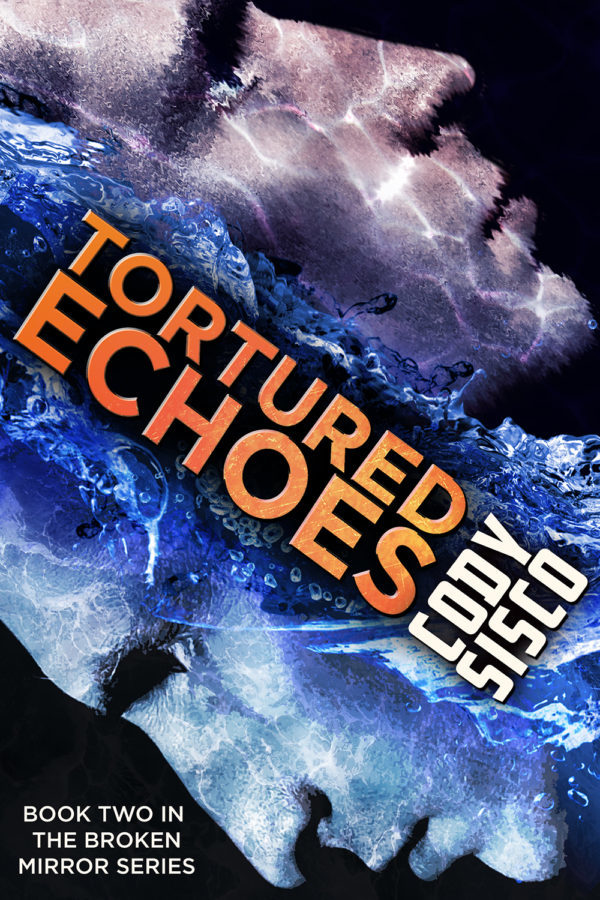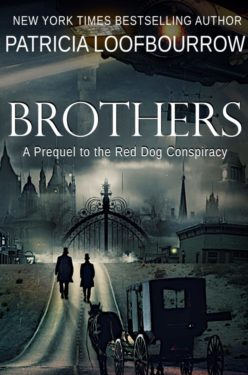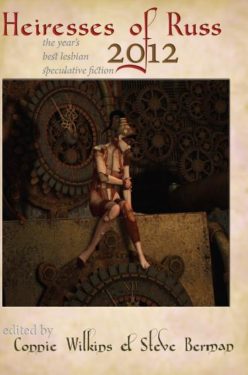Volume Two in the Resonant Earth Series
by
Bioinformatics whiz Victor Eastmore at long last gains control over his frightening mirror resonance syndrome, but he still believes his grandfather was murdered.
Victor’s best hope for finding justice lies in New Venice, a tourist town in the Louisiana Territories where his family’s company is exploring new treatment options for so-called “Broken Mirrors” and the stim addicts who experience similar symptoms–blank outs, synesthesia, and euphoria. Only by confronting Samuel Miller, the MRS “patient zero” who was responsible for the Carmichael Massacre, can Victor learn the truth. To do that, Samuel must first be weaned off Personil, the drug that keeps his mirror resonance syndrome in check.
Can Victor learn the data egg’s darkest secrets without unleashing a violent madman?
Meanwhile, a cult dedicated to the sanctity and purity of human life disrupts New Venice with protests and vandalism. When they take an interest in stopping BioScan from medicating MRS patients, including Samuel Miller, Victor finds himself with unlikely allies and divided loyalties.
As pressure builds for the nations of the American Union to pass new legislation to control Broken Mirrors, Victor must become an effective advocate for people with MRS or risk being institutionalized along with them.
A fast-paced sequel to Broken Mirror, Tortured Echoes continues the sci-fi detective saga of Resonant Earth. In this installment, fans of Broken Mirror will finally get answers to their questions: Why was Jefferson Eastmore killed? How did it happen? Who was responsible?
Revisit the world of self-driving cars, stunsticks, brainhackers, and herbalism with Victor, Elena, Ozie, Tosh, and Karine, and several new figures that might help Victor chart a new course for his future, or condemn him to madness.
- 1 To Be Read list
Publisher: Resonant Earth Publishing
Genres:
Series Type: Continuous / Same Characters
Series Type: Continuous / Same Characters
Tortured Echoes - excerpt
My honeymoon should have been the happiest week of my life. Claudio’s too. We were supposed to spend it relaxing, making love in the afternoon, enjoying sunsets and crickets and music. Instead I saw horrors.
Memories of the people we’ve lost disappear faster the more fiercely we hold onto them. They fossilize, hardening into unsatisfactory substitutes. One crystalized poignant reflection—a realpic of lovers spooning gelato into each other’s mouths—can erase a lifetime of less precious moments, even the beautiful ones.
Our dead can never delight, disappoint, or surprise us again. Death is painful certainty. Death is dully unsurprising. And death is a cruel comfort in an uncertain world.
—Interview with Mía Barrias in Five Years After Carmichael (1976)
READ MORE5 May 1991
Oakland & Bayshore, Semiautonomous California
Two Classification nurses in blue coveralls brought Samuel Miller onstage. He moved in a kind of lurching hobble, his wrists and ankles shackled with carbon fiber cables. His eyes gazed forward, witless. The Personil had had the intended effect.
A quiet murmur threaded through the crowd that had assembled in the National Theater as the nurses led Samuel into a steel-barred cage.
Mía Barrias stood offstage next to the folds of a gold-and-blue striped curtain, watching the nurses affix a biometric lock joining the cable to an eye bolt protruding from the stage. They checked his restraints again.
“You don’t need to be gentle,” Mía said into the small voicecap pinned to her collar. “He can’t feel a thing.”
The nurses’ sonobulbs relayed her comments to their ears. One of the nurses glanced her way and gave a fingerburst of acknowledgment.
Samuel Miller’s arms hung limply at his sides. To a casual observer, he would have resembled a wax figure in a museum of the macabre. Come look at the madman of SeCa. Gaze in astonishment and revile him.
The nurses left the cage and locked the door. A loud clang resounded though the theater. The crowd was silent for a moment, seemed to draw a collective breath, and then erupted in shouts, shrieks, and catcalls of obscenities.
Their howling wasn’t a surprise, but its strength startled Mía. Thirty years after the Carmichael Massacre and the people of Semiautonomous California still picked at their scabs. She didn’t blame them. Samuel had been the source of so much of her own anguish that even now, decades later, her mouth filled with venom on seeing him. He was older and wrinkled now, blank eyes reflecting a blank mind, but the monster who’d killed her husband on their honeymoon, and hundreds of others, was still in there somewhere. She knew it.
The ruckus went on for some time, survivors and victims’ families making themselves heard with force and energy. Mía waited for them to calm down before giving her remarks. This was their good-bye, a final send-off, and it shouldn’t be rushed. Samuel Miller’s custody was being remanded from SeCa’s Classification Commission to BioScan. Soon he would be moved to a facility in the Louisiana Territories, where the research into mirror resonance syndrome that had been on hold for two decades could begin again. Everyone would benefit.
She checked that no one was looking and pulled a tiny pliable flask like a jellyfish from her boot. Bourbon. If there was one consolation prize for moving to the LTs to supervise Samuel’s care, it was being closer to the source of her favorite medication. She swigged what was left, wiped her mouth, tucked the flask back in her boot, and walked onstage.
Like a switch had been flipped, the crowd’s jeers transformed into cheers and applause. She waved to the audience as she approached the cage, then turned to stare into Samuel’s dark brown eyes from a few paces away. Nothing going on in there, thanks to a quadruple dose of Personil. He looked younger than his fifty-something years close up. Though his eyes were open and he blinked every few seconds, she didn’t see a single spark of consciousness, exactly as the Commission board had agreed—they weren’t putting him in front of a SeCa audience with anything less than total cognitive suspension.
Still, she knew this wasn’t entirely true. Somewhere, deep in his brain, sensations were registering, although they would most likely fade without becoming memories. Maybe later he would wonder why his wrists hurt. Not now.
She turned to face the crowd. The cheers intensified. She was their hero. The woman who’d escaped Carmichael—and returned with help. No. The terrified woman who’d run away. She’d tried to correct them countless times, but no one would hear of it. She’d made investigating Samuel Miller and others with mirror resonance syndrome her life’s work, created the Classification Commission, and put a stop to the bloodshed. She was their hero.
Mía stood at the podium and spoke. The lines were the same as always, her canned speech that for decades had functioned like a healing ritual. What happened to me in Carmichael. How I escaped. What I vowed to do. Men and women in the audience were crying, faces upturned.
Now she came to the pivot point, a new line. An untested one.
“Today marks a new era for SeCa. We have healed. We are ready to move on.”
Lately she’d been wondering if, after all that had happened, she’d led SeCa down the wrong path. The Classification Commission had been designed to protect the populace, to make them feel secure, and to return them to a society free from violence. But if the people’s pain persisted after so much time, perhaps they hadn’t been healing. Perhaps instead their rituals normalized victimhood and fetishized the stigmatization of Broken Mirrors.
“The people of SeCa are unfortunately familiar with the dangers of mirror resonance syndrome,” Mía said, “and they have worked diligently to create a society free from fear. I’m here to tell you today: we no longer need to carry our burden alone. Samuel Miller and a portion of our MRS patients will be transferred to the Louisiana Territories, where they will remain in the custody of BioScan. For this, we are grateful.”
As Mía wrapped up her remarks, she noticed that the survivors and victims’ families were lining up on a wooden ramp that led from the hall to the stage. The first five in line were in wheelchairs.
She had gotten to know all of them over the years. The woman whose sister had died in the gazebo. The mother of the boy whose house had been obliterated in front of Mía’s eyes. The brother and sister who’d lost their parents to rampaging autocabs.
As Mía watched, the first several groups approached the cage and leered at Samuel. A few even spat through the bars. Broken Mirrors in SeCa had always created a spectacle—providing people with an outlet for their fear and anger served a specific purpose after Carmichael. Now she wondered whether the people of SeCa could move on. Was today helping? The Classification Commission couldn’t just whisk Samuel away. They’d decided that the people needed closure. One last ritual.
Mía wished Jefferson Eastmore was here to assuage her doubts. He would have cleared his calendar to attend if he were still alive. Oddly, today there were no Eastmores in the audience, but then, they would have added a gloss to the event that wouldn’t have entirely been welcome. This was about healing and moving on, and the Eastmores somehow always attracted attention, even when they didn’t seek it out.
A commotion in the audience drew her gaze. Security officers in black-and-green uniforms surrounded someone in the queue. The stage manager’s voice whispered through the sonobulb in her ear, “They confiscated a stunstick. The man is demanding they let him continue anyway.”
“Fine, let him approach—but with an escort,” she said.
Are our enemies our own creations? was a question Mía hadn’t thought to ask until it was too late. Worse, what if your enemies were powerless—guiltless even—and yet you punished them all the same?
Samuel deserved every insult heaped on him. But what about the rest? They needed a fresh start. That’s what she was working toward, why today mattered so much. A fresh start for her and for people with MRS everywhere.
“Murderer!” The shout came from a woman standing in front of the cage, her hands gripping the bars, shaking so hard, Mía was surprised the whole apparatus didn’t rattle.
Samuel stood there, shackled, medicated. His mouth opened, and a low moan escaped.
Mía hurried to the cage, leaned into the steel bars, and looked closely. Samuel’s gaze met hers as another moan, a long rolling O, came out. He was coming to.
“Get him offstage,” Mía said into her voicecap.
The people in line started to bunch up, rushing the cage, reaching through the bars.
“He’s awake!” someone cried. “The bastard can hear us!”
“Ghosts,” Samuel said, his voice ragged and gurgling.
“Sicko Samuel,” a woman yelled, and the crowd took up the chant. “Sicko Samuel! Sicko Samuel!”
“Ghosts! You’re all ghosts!” Samuel shouted. He lunged forward and fell, pulled up short by the restraints.
Security officers were pouring onstage from the wings, holding back the crowd so the nurses could remove Samuel from the cage. The stage manager bounded over to Mía, pony tail bucking, and escorted her offstage. She resisted. “Turn up my volume,” she said. He did.
“Please remain calm,” she pleaded.
No one seemed to hear her. People started pelting Samuel, the nurses, the security officers with objects: MeshBits, bottles of nail polish, keys, whatever they could pull from their pockets.
“Shut the whole thing down,” she told the stage manager. But he was no longer in charge. Security officers were trying to push people back down the ramp. Trinkets and trash flew onto the stage. Mía ripped off her sonobulb and voicecap, found a door marked “Emergency Exit,” and hustled down a hallway to another door. Then she was outside, catching her breath.
The fog had already rolled in, and the air was filled with the sounds of engines, people shouting. She rounded the corner and stopped, dumbstruck.
Thousands of people were assembled at the steps to the National Theater, their disparate chants rising and falling. Police in riot gear were struggling to establish a barricade. She checked—this was not getting Mesh coverage. Sirens came from the direction of City Lake, echoing through the canyons of skyscrapers. The sea of people in front of the theater surged against the barricades. Mía walked closer, approaching the battle lines from an odd angle.
A policewoman stopped her.
“What do they want?” Mía asked.
“Blood.”
The officer pointed to a statue of Jefferson Eastmore at the center of a plaza across the street. The statue’s hands held a DNA molecule styled to resemble Hermes’s serpent-entwined Rod of Caduceus. At its base was a platform of wooden pallets. A noose swung from the rod several meters over the pavement.
The policewoman’s mouth twisted in derision. “Can’t say I blame them.” She looked at Mía and seemed to recognize her. She blanched, opened her mouth: “Excuse me, I’m so sorry. I didn’t realize who you—I’m so sorry.”
Mía thought to ask if the crowd would be a problem, if she should do something to secure Samuel’s passage out of the city. Had they gotten him offstage?
The crowd’s plaintive cries washed over her.
“Don’t let the murderer escape!”
“Justice before mercy!”
“Death to Broken Mirrors!”
Mía’s throat burned. Tear gas somewhere nearby.
Her MeshBit vibrated. Prisoner secured, the message read.
She shook her head, turned away. She’d done enough to make SeCa what it was. She could do no more. It was time to start over somewhere else. She would do better this time.
From AMAZON and Barnes & Noble - $3.99 ebook / $16 paperback
COLLAPSE






